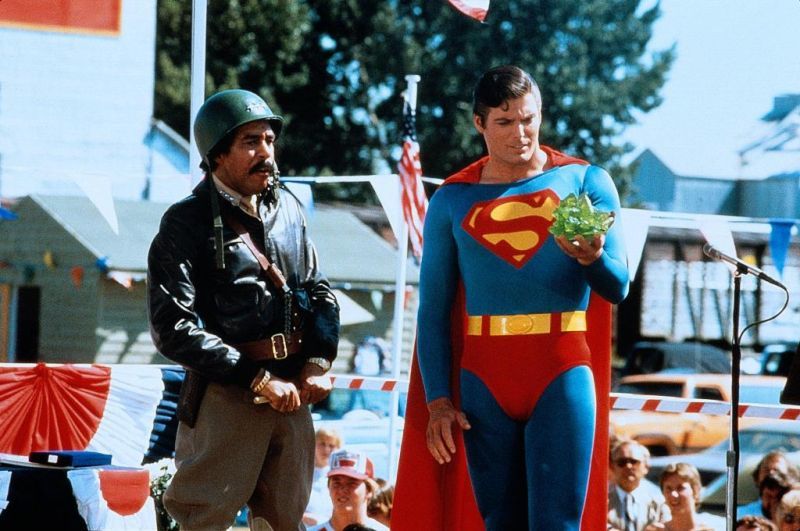When Superman III soared into theaters in 1983, it brought with it a wave of surprises for fans of the Man of Steel. Directed by Richard Lester, who had a hand in finishing Superman II, this third installment took a bold turn from the heroic epic tone established by Richard Donner in the first two movies. Let’s take a closer look at what sets Superman III apart and why it remains a unique entry in the Superman film series.
A Lighter, More Comedic Tone
One of the first things you notice about Superman III is its significant shift in tone. The first two films balanced superhero drama with a sense of wonder and gravitas, but Superman III leans heavily into comedy. The film opens with a slapstick sequence in Metropolis, filled with bumbling pedestrians and cartoonish mishaps. It’s a far cry from the epic space and rescue scenes that kicked off the previous movies.
This change can be attributed to director Richard Lester, known for his work on comedies like A Hard Day’s Night. Lester’s influence brought a more humorous, almost satirical edge to the film, which was a stark contrast to Richard Donner’s earnest approach. For some, this was a refreshing change, but for others, it felt like a departure from what made Superman such an iconic hero.
Richard Pryor’s Role
A significant factor in the comedic shift was the inclusion of Richard Pryor as Gus Gorman, a lovable yet inept computer programmer. Pryor was a superstar comedian at the time, and his presence dominated much of the film. Gorman’s antics, from hacking into the computer systems of the unscrupulous businessman Ross Webster (played by Robert Vaughn) to accidentally creating synthetic kryptonite, brought a different flavor to the story.
While Pryor’s performance was undeniably entertaining and brought in a new audience, it also overshadowed the traditional superhero narrative. Some fans felt that Superman III became more of a Richard Pryor comedy featuring Superman, rather than a Superman movie with comedic elements. This was a risky move by the filmmakers, aiming to blend genres in a way that hadn’t been done before in superhero cinema.
Back to Smallville
Superman III also takes us back to Clark Kent’s roots in Smallville. Clark (Christopher Reeve) returns home for his high school reunion and reconnects with his childhood love, Lana Lang, portrayed by Annette O’Toole. This subplot offers a charming, nostalgic look at Clark’s past and humanizes the character in a way the earlier films didn’t. We see Clark as more than just Superman; he’s also a guy dealing with normal life issues.
The Duality of Superman
One of the film’s most memorable sequences involves Superman’s exposure to synthetic kryptonite, which causes a split in his personality. We get to see a darker, more selfish side of Superman, which culminates in an intense junkyard battle between his good and evil halves. This internal conflict provided Christopher Reeve with a fantastic opportunity to showcase his acting range, depicting the hero’s struggle against his darker impulses.
A New Villainous Plot
Instead of facing off against Lex Luthor, Superman contends with Ross Webster, a wealthy industrialist with a plan to control the world’s coffee and oil supplies using Gus’s computer wizardry. While Webster’s schemes might lack the world-ending stakes typical of superhero villains, they fit the film’s more whimsical tone. The plot, which includes hijacking weather satellites to create destructive storms, is more eccentric than menacing, aligning with the movie’s overall lighter feel.
Mixed Reactions
The reception to Superman III was mixed. Some viewers appreciated the film’s comedic elements and found it a fun departure from the serious tones of its predecessors. Others, however, were disappointed by the deviation from the established formula and felt that the humor undermined the epic, heroic nature of Superman.
Legacy of Superman III
Superman III remains a fascinating chapter in the history of superhero films. Its willingness to experiment with tone and genre set it apart from other entries in the series. While it may not have achieved the acclaim of the first two films, it contributed to the broader landscape of superhero cinema by showing that even the most iconic heroes can have a quirky, offbeat adventure.
So, if you’re in the mood for a Superman story that mixes comedy with heroics, give Superman III another watch. It’s a nostalgic trip back to a time when superhero films were still finding their footing and weren’t afraid to take risks.

